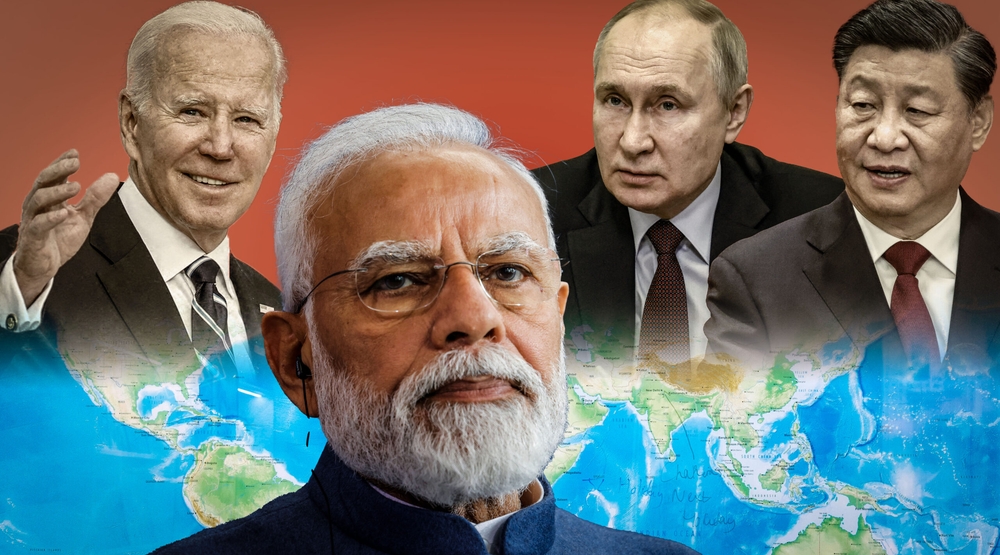Published
- 4 min read
The Rise of Multipolarity: A Realignment of Global Power

As the 21st century progresses, the notion of a unipolar or even a bipolar world order is increasingly giving way to the emergence of a multipolar reality. This new global framework is characterized by the rising influence of diverse power centers, including emerging economies like China, India, Brazil, and regional blocs such as ASEAN and the African Union. These actors challenge the traditional dominance of Western powers and propose alternative paths to global governance, economic development, and diplomatic engagement.
The Shift Toward Multipolarity
Historically, global power was concentrated in the hands of a few nations, with Western countries driving much of the world’s economic, political, and cultural agenda. However, the rapid economic growth of nations like China and India, coupled with technological advancements and shifts in demographic trends, has led to the decentralization of influence. The multipolar world is no longer a theoretical construct; it is a lived reality.
Unlike the “New Sustainable World Order,” which emphasizes Western-driven frameworks of democracy, climate action, and open markets, the multipolar vision recognizes that diverse paths can lead to stability and prosperity. Emerging powers are redefining international norms based on their cultural, historical, and economic contexts.
Redefining Global Cooperation
In a multipolar world, the idea of global governance is not confined to Western ideals. For instance, China’s Belt and Road Initiative (BRI) exemplifies an alternative model of global cooperation—one focused on infrastructure development and economic connectivity. Similarly, India’s leadership in the International Solar Alliance (ISA) demonstrates a commitment to global challenges like climate change but from a distinctly Global South perspective.
Emerging economies emphasize pragmatic partnerships over ideological alignment. This approach fosters inclusive cooperation, allowing countries with differing political systems and economic structures to collaborate effectively.
Challenges to the Western Narrative
The Western-centric model of a “sustainable world order” often prioritizes issues like climate change and human rights. While these are vital, many emerging nations argue that the immediate needs of poverty alleviation, industrialization, and equitable trade policies must take precedence. This divergence highlights the limitations of a one-size-fits-all approach to global governance.
Moreover, the imposition of sustainability regulations, such as carbon taxes or trade barriers, often disadvantages developing nations, which rely heavily on traditional industries and natural resources. Instead of framing these nations as obstacles to progress, the multipolar world seeks to integrate their perspectives into the global conversation.
The Role of Sovereignty
Sovereignty remains a cornerstone of the multipolar framework. Countries like Russia and China have been vocal about their resistance to perceived external interference under the guise of promoting democratic values or human rights. This stance resonates with many nations in the Global South, which view such interventions as neocolonialism.
By prioritizing sovereignty, the multipolar order respects the diversity of governance systems and cultural practices. This approach challenges the narrative that Western-style democracy and market liberalization are universal solutions.
Technology and Innovation
Technology serves as both a battleground and a bridge in the multipolar world. While the West remains a leader in innovation, emerging powers are rapidly closing the gap. China’s advancements in artificial intelligence, India’s achievements in space exploration, and Brazil’s innovations in renewable energy underscore the shifting technological landscape.
These nations are not merely adapting to existing frameworks but are creating their own ecosystems of innovation. This democratization of technology further strengthens the case for a multipolar world.
The Path Forward
The transition to a multipolar world order is not without challenges. Power rivalries, economic disparities, and ideological differences could lead to friction. However, this new reality also offers opportunities for more equitable and inclusive global governance.
In this framework, cooperation is not dictated by a single hegemon but negotiated among multiple stakeholders. This approach has the potential to address global challenges like climate change, economic inequality, and geopolitical instability more effectively, as it incorporates a broader range of voices and experiences.
Conclusion
The rise of multipolarity marks a significant departure from the Western-dominated paradigms of the past. While some may see this as a threat to the stability of the global order, it is, in fact, an opportunity to build a more inclusive and resilient international system. By embracing diversity in governance, development, and diplomacy, the multipolar world offers a fresh vision for the future—one that balances power and priorities across a truly global landscape.
